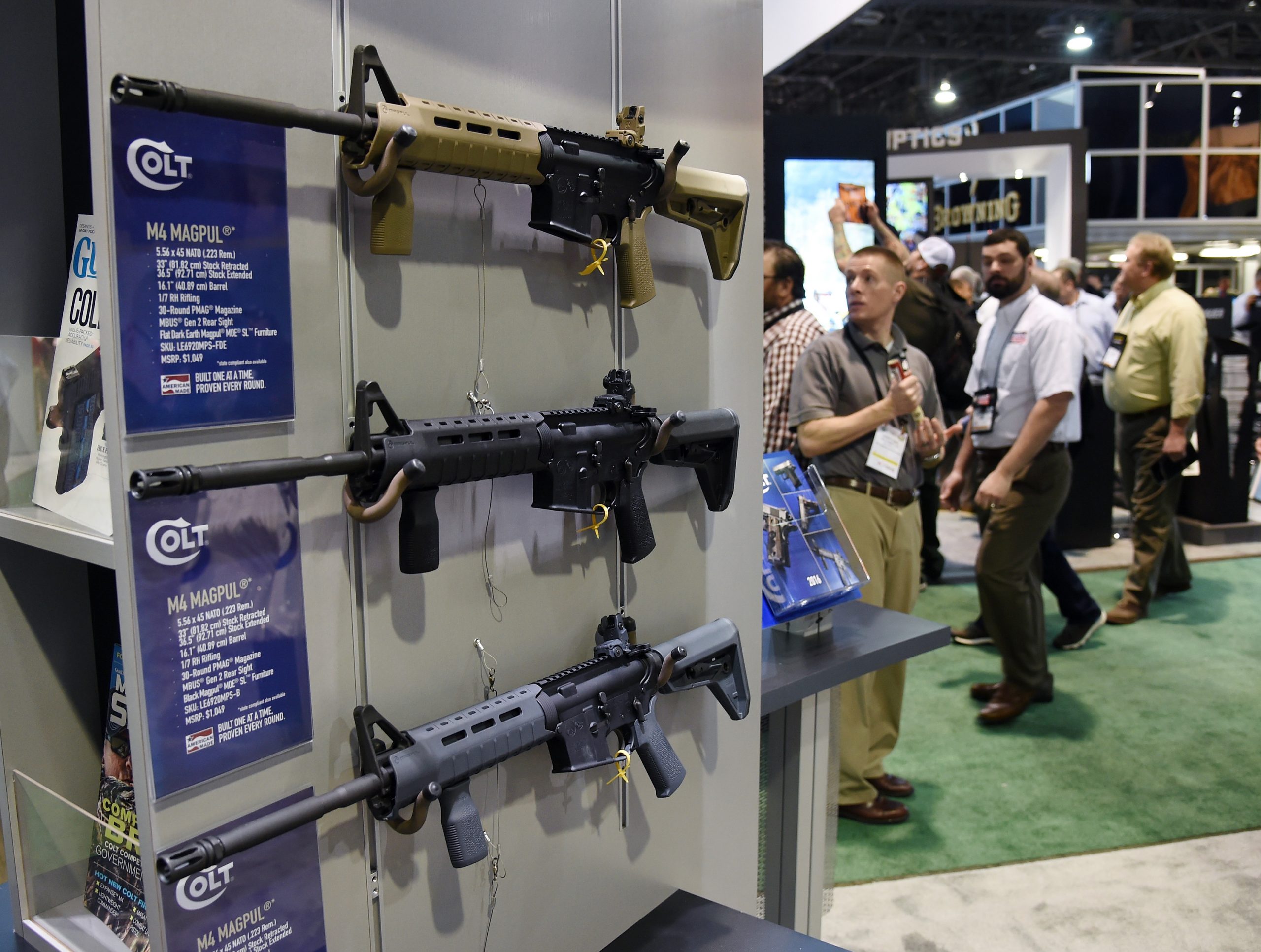Good morning, Bulletin readers. In today’s edition: What happened after the federal assault weapons ban expired, what doesn’t cause mass shootings, and what the public thinks of business leaders who speak out on gun violence.
Receive this daily news briefing by email every morning. Sign up here.
WHAT TO KNOW TODAY
Survey indicates Americans feel more favorable toward companies and CEOs that publicly support gun safety laws. A poll conducted by global PR giant Edelman found that corporate reputations can receive a boost when companies and their leaders advocate for specific measures like universal background checks or mandatory licensing for gun owners. Most Americans also like it when retailers stop selling assault-style rifles. Ending all business with the gun industry polled less favorably. Axios flags the major takeaway: “Executives have the public’s permission to use their platforms to draw visibility to the issue and support gun safety laws.”
Mass shooting fatalities skyrocketed following the expiration of the federal assault weapons ban. In an opinion piece for The New York Times, Stanford law professor John Donahue looked at active shooting incidents before, during, and after the law’s 10-year term. According to his calculations, gun massacres dropped in frequency and deadliness while the ban was in place from 1994 to 2004. In the decade after it lapsed, he found, deaths from mass shootings that resulted in six or more deaths jumped 347 percent, “even as overall violent crime continued downwards.”
A congressional report found no link between mass shootings and violent video games or mental health. Democratic Senator Patrick Leahy of Vermont previewed a forthcoming report from the Congressional Research Service, which provides policy analysis to lawmakers. The study compared gun violence rates to video game revenue and the prevalence of mental disorders in seven peer nations. The upshot, per Leahy: The United States trails Japan in gaming revenue and trails Australia in mental illness rates, but leads in gun ownership and shootings. “All these other countries have video games, all these other countries have mental disorders, but they don’t have the incidence of gun violence that we do,” he said.
Maryland police use red flag law to disarm a man who talked about shooting his co-workers. The 54-year-old had reportedly been fired from his job at a machine shop last week after threatening to kill specific employees. Officers serving the extreme risk protection order at the man’s home on Tuesday found 146 guns.
Two survivors of the El Paso massacre are suing Walmart for failing to secure the store. The first lawsuit to arise from the August 3 shooting alleges Walmart should have had security guards patrolling the store. The firm representing Jessica and Guillermo Garcia, who were wounded, requested a restraining order to preserve what’s left of the crime scene and details about the retailer’s security practices. In a statement, Walmart said in part that “safety is a top priority.”
Philadelphia police launched a website to help solve cold cases. PhillyUnsolvedMurders presents biographical information about victims of unsolved murders over the last three years and invites readers to submit anonymous tips. In January, The Trace and BuzzFeed News reported that the clearance rate for murders committed with guns in 22 cities — including Philadelphia — has dropped by around 20 percentage points since the 1980s.
First responders in St. Louis had to dodge a barrage of gunfire. Emergency medical technicians in the city reported facing a burst of 30 shots while responding to a medical call on Monday night. “We’re just here trying to do our jobs and we don’t want to get caught in the middle of gunfights,” the city’s Fire Department captain said.
Officials in San Francisco designated the NRA a “domestic terrorist organization.” A resolution passed by the city’s Board of Supervisors holds that the National Rifle Association’s activities fall under the Justice Department’s definition of terrorist activity. The gun group wasted no time seizing on the move, calling it “a reckless assault on a law-abiding organization, its members, and the freedoms they all stand for.”
ONE LAST THING
A string of mass shootings has put Texas’s Republican governor in a political bind. In his four years in office, Greg Abbott has overseen an expansion of gun rights. But after the second mass shooting in his state in the space of a month, he acknowledged this week that “the status quo is unacceptable” and is feeling increased pressure to embrace reform. “The governor’s in a tight spot,” one gun reform advocate told The Texas Tribune, “because the majority [Republican] legislative coalition doesn’t really give anyone on that side a chance to move on this.” Abbott voiced support for red flag laws after last year’s shooting at Santa Fe High School, but retreated after his stance exposed internal GOP divisions. On Tuesday, the Republican leaders of both legislative chambers announced the creation of bipartisan committees to recommend solutions ahead of the next session, which convenes in 2021. Democratic state lawmakers are pressuring Abbott to call a special session to consider more immediate action.

